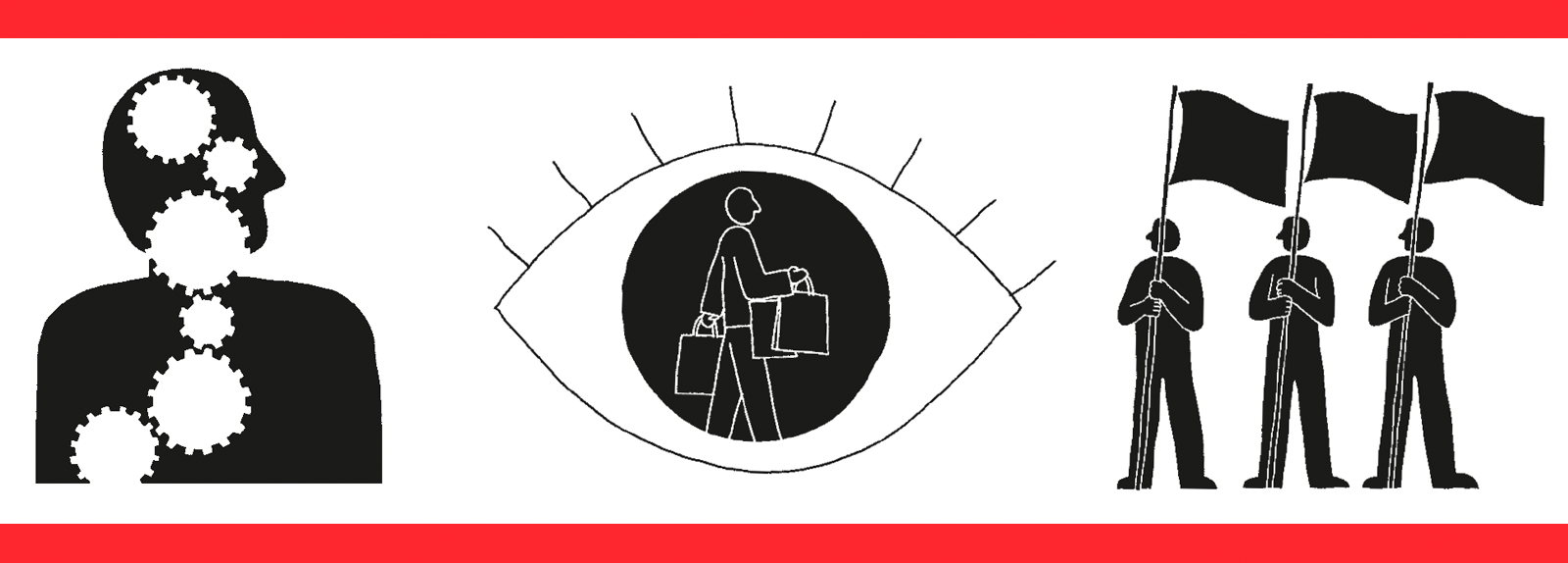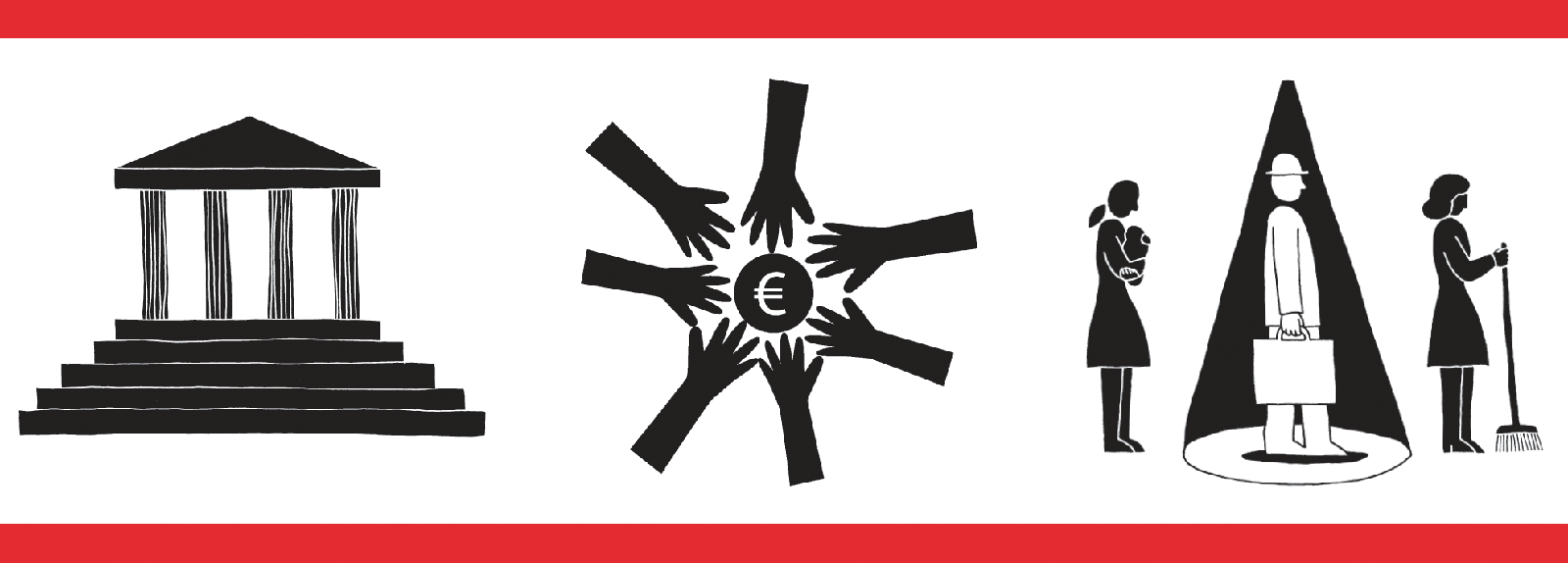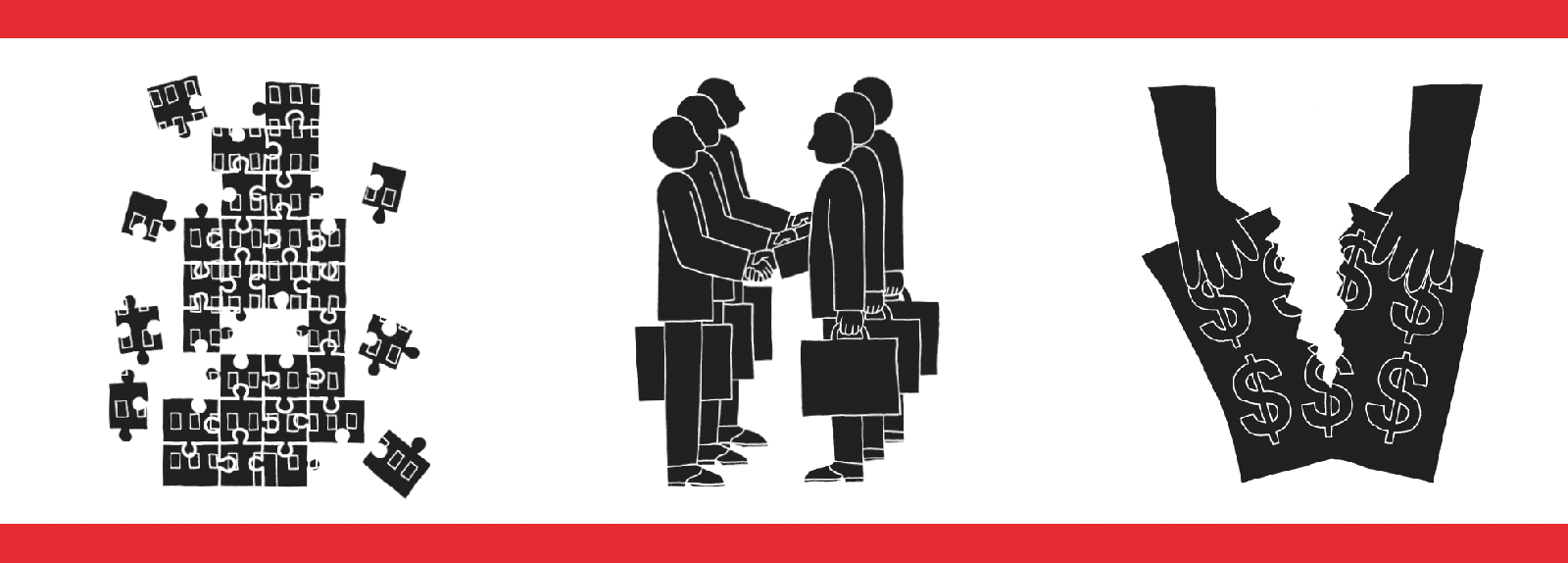
INTRODUCTION
Few people would claim to know very much about economics, perhaps seeing it as a complex and esoteric subject with little relevance to their everyday lives. It has been generally felt to be the preserve of professionals in business, finance, and government. Yet most of us are becoming more aware of its influence on our wealth and well-being, and we may also have opinions—often quite strong ones—about the rising cost of living, taxes, government spending, and so on. Sometimes these opinions are based on an instant reaction to an item in the news, but they are also frequently the subject of discussions in the workplace or over the dinner table. So to some extent, we do all take an interest in economics. The arguments we use to justify our opinions are generally the same as those used by economists, so a better knowledge of their theories can give us a better understanding of the economic principles that are at play in our lives.
"In economics, hope and faith coexist with great scientific pretension and also a deep desire for respectability."
John Kenneth Galbraith
Canadian-US economist (1908–2006)
Economics in the news
Today, with the world in apparent economic turmoil, it seems more important than ever to learn something about economics. Far from occupying a separate section of our newspaper or making up a small part of the television news, economic news now regularly makes the headlines. As early as 1997, the US Republican political campaign strategist Robert Teeter noted its dominance, saying, “Look at the declining television coverage [of politics]. Look at the declining voting rate. Economics and economic news is what moves the country now, not politics.”
Yet how much do we really understand when we hear about rising unemployment, inflation, stock market crises, and trading deficits? When we’re asked to tighten our belts or pay more taxes, do we know why? And when we seem to be at the mercy of risk-taking banks and big corporations, do we know how they came to be so powerful or understand the reasons for their original and continued existence? The discipline of economics is at the heart of questions such as these.
The study of management
Despite the importance and centrality of economics to many issues that affect us all, economics as a discipline is often viewed with suspicion. A popular conception is that it is dry and academic, due to its reliance on statistics, graphs, and formulas. The 19th-century Scottish historian Thomas Carlyle described economics as the “dismal science” that is “dreary, desolate, and, indeed, quite abject and distressing.” Another common misconception is that it is “all about money,” and while this has a grain of truth, it is by no means the whole picture.
"The first lesson of economics is scarcity: there is never enough of anything to satisfy all those who want it. The first lesson of politics is to disregard the first lesson of economics."
Thomas Sowell
US economist (1930–)
So, what is economics all about? The word is derived from the Greek word Oikonomia, meaning “household management,” and it has come to mean the study of the way we manage our resources, and more specifically, the production and exchange of goods and services. Of course, the business of producing goods and providing services is as old as civilization, but the study of how the process works in practice is comparatively new. It evolved only gradually; philosophers and politicians have expressed their opinions on economic matters since the time of the ancient Greeks, but the first true economists to make a study of the subject did not appear until the end of the 18th century.
At that time the study was known as “political economy,” and had emerged as a branch of political philosophy. However, those studying its theories increasingly felt that it should be distinguished as a subject in its own right and began to refer to it as “economic science.” This later became popularized in the shorter form of “economics.”

A softer science
Is economics a science? The 19th-century economists certainly liked to think so, and although Carlyle thought it dismal, even he dignified it with the label of science. Much economic theory was modeled on mathematics and even physics (perhaps the “-ics” ending of “economics” helped to lend it scientific respectability), and it sought to determine the laws that govern how the economy behaves, in the same way that scientists had discovered the physical laws underlying natural phenomena. Economies, however, are man-made and are dependent on the rational or irrational behavior of the humans that act within them, so economics as a science has more in common with the “soft sciences” of psychology, sociology, and politics.
Economics was perhaps best defined by British economist Lionel Robbins. In 1932, he described it in his Essay on the Nature and Significance of Economic Science as “the science which studies human behavior as a relationship between ends and scarce means which have alternative uses.” This broad definition remains the most popular one in use today.
The most important difference between economics and other sciences, however, is that the systems it examines are fluid. As well as describing and explaining economies and how they function, economists can also suggest how they ought to be constructed or can be improved.
The first economists
Modern economics emerged as a distinct discipline in the 18th century, in particular with the publication in 1776 of The Wealth of Nations, written by the great Scottish thinker Adam Smith. However, what prompted interest in the subject was not so much the writings of economists as the enormous changes in the economy itself with the advent of the Industrial Revolution. Previous thinkers had commented on the management of goods and services within societies, treating questions that arose as problems for moral or political philosophy. But with the arrival of factories and mass producers of goods came a new era of economic organization that looked at the bigger picture. This was the beginning of the so-called market economy.
Smith’s analysis of the new system set the standard with a comprehensive explanation of the competitive market. Smith suggested that the market is guided by an “invisible hand,” where the rational actions of self-interested individuals ultimately give the wider society exactly what it needs. Smith was a philosopher, and the subject of his book was “political economy”—it stretched beyond economics to include politics, history, philosophy, and anthropology. After Smith a new breed of economic thinkers emerged who chose to concentrate entirely on the economy. Each of these built upon our understanding of the economy—how it works and how it should be managed—and laid the foundations for the various branches of economics.
As the discipline evolved, economists identified specific areas to examine. One approach was to look at the economy as a whole, either at a national or international level, which became known as “macroeconomics.” This area of economics takes in topics such as growth and development, measurement of a country’s wealth in terms of output and income, and its policies for international trade, taxation, and controlling inflation and unemployment. In contrast, what we now call “microeconomics” looks at the interactions of individual people and firms within the economy: the business of supply and demand, buyers and sellers, markets and competition.

New schools of thought
Naturally, there were differences of opinion among economists, and various schools of thought evolved. Many welcomed the prosperity that the modern industrial economy brought and advocated a “hands-off” or laissez-faire approach to allow the competitive market to create wealth and stimulate technological innovation. Others were more cautious in their estimation of the market’s ability to benefit society and identified failings of the system. They thought these could be overcome by state intervention and argued for a role for governments in providing certain goods and services and in curbing the power of the producers. In the analysis of some, notably the German philosopher Karl Marx, a capitalist economy was fatally flawed and would not survive.
"Economics is, at root, the study of incentives: how people get what they want, or need, especially when other people want or need the same thing."
Steven D. Levitt, Stephen J. Dubner
US economists (1967– and 1963–)
The ideas of the early “classical” economists such as Smith were increasingly subjected to rigorous examination. By the late 19th century economists educated in science were approaching the subject through the disciplines of mathematics, engineering, and physics. These “neoclassical” economists described the economy in graphs and formulas, and proposed laws that governed the workings of the markets and justified their approach.
By the end of the 19th century economics was beginning to develop national characteristics: centers of economic thinking had grown as university departments were established, and there were distinguishable differences between the major schools in Austria, Britain, and Switzerland, particularly on the desirability of some degree of state intervention in the economy.
These differences became even more apparent in the 20th century, when revolutions in Russia and China brought almost a third of the world under communist rule, with planned economies rather than competitive markets. The rest of the world, however, was concerned with asking whether the markets alone could be trusted to provide prosperity. While continental Europe and Britain argued about degrees of government intervention, the real battle of ideas was fought in the US during the Great Depression after the Wall Street Crash of 1929.
In the second half of the 20th century the center of economic thought shifted from Europe to the US, which had become the dominant economic superpower and was adopting ever more laissez-faire policies. After the collapse of the Soviet Union in 1991, it seemed that the free market economy was indeed the route to economic success, as Smith had predicted. Not everyone agreed. Although the majority of economists had faith in the stability, efficiency, and rationality of the markets, there were some who had doubts, and new approaches arose.

Alternative approaches
In the late 20th century new areas of economics incorporated ideas from disciplines such as psychology and sociology into their theories, as well as new advances in mathematics and physics, such as game theory and chaos theory. These theorists also warned of weaknesses in the capitalist system. The increasingly severe and frequent financial crises that took place at the beginning of the 21st century reinforced the feeling that there was something fundamentally wrong in the system; at the same time scientists concluded that our ever-increasing economic wealth came at a cost to the environment in the form of potentially disastrous climate change.
"The purpose of studying economics is …to learn how to avoid being deceived by economists."
Joan Robinson
UK economist (1903–83)
As Europe and the US begin to deal with perhaps the most serious economic problems they have ever faced, new economies have emerged, especially in Southeast Asia and the so-called BRIC countries (Brazil, Russia, India, and China). Economic power is once again shifting, and no doubt new economic thinking will evolve to help manage our scarce resources.
One prominent casualty of the recent economic crises is Greece, where the history of economics started, and where the word “economics” comes from. In 2012, protesters in Athens pointed out that democracy also comes from the Greeks but is in danger of being sacrificed in the search for a solution to a debt crisis.
It remains to be seen how the world economy will resolve its problems, but, armed with the principles of economics outlined in this book, you will see how we got into the present situation, and perhaps begin to see a way out.